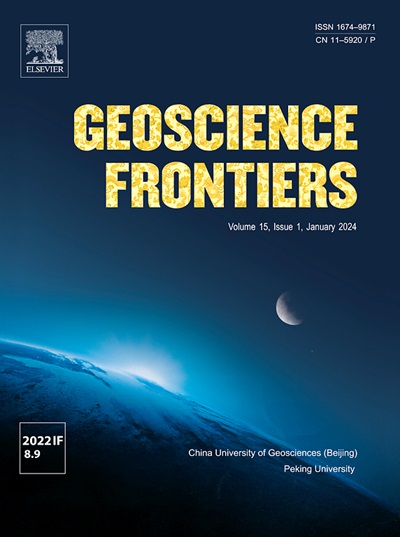Rethinking energy and policy: Driving the circular economy through renewables versus nuclear energy in OECD countries
IF 8.9
1区 地球科学
Q1 GEOSCIENCES, MULTIDISCIPLINARY
引用次数: 0
Abstract
The circular economy (CE) presents a promising approach to integrating industry with sustainability and circularity, which helps minimize ecological harm and preserve natural resources for future generations. This study focused on the roles of nuclear energy, renewables, and climate policies in advancing a CE. It examined the intentions of OECD countries regarding CE practices and the various factors influencing these intentions from 2000 to 2019. This study utilized second-generation panel data tools, such as slope homogeneity and stationarity tests, to assess cross-sectional dependence and heterogeneity in the panel dataset. The study employed the moment quantile regression (MM-QR) method to obtain regression estimates and analyze the conditional distribution across all quantiles. The findings indicated that the role of nuclear energy in promoting CE was negative across all quantiles. In contrast, renewable energy positively supports achieving CE in OECD countries. Climate policies assisted OECD countries in progressing toward CE in both the nuclear energy and renewable energy models. We conducted a robust check using a non-parametric panel Granger causality test, which confirmed the expected results for all other factors. The collaborative efforts for waste minimization ensure that nuclear energy systems are resilient, economically feasible, and environmentally sustainable.

重新思考能源和政策:经合组织国家通过可再生能源与核能推动循环经济
循环经济(CE)提出了一种很有前途的方法,将工业与可持续性和循环性相结合,有助于最大限度地减少生态危害,并为子孙后代保护自然资源。本研究的重点是核能、可再生能源和气候政策在推进节能减排中的作用。它审查了经合组织国家在2000年至2019年期间对环保实践的意图以及影响这些意图的各种因素。本研究利用第二代面板数据工具,如斜率均匀性和平稳性检验,来评估面板数据集的横截面依赖性和异质性。本研究采用矩分位数回归(MM-QR)方法获得回归估计,并分析各分位数的条件分布。研究结果表明,核能在促进CE方面的作用在所有分位数中都是负的。相比之下,可再生能源积极支持经合发组织国家实现可持续能源。气候政策协助经合发组织国家在核能和可再生能源模式方面向可持续能源迈进。我们使用非参数面板格兰杰因果检验进行了稳健检查,证实了所有其他因素的预期结果。减少废物的合作努力确保核能系统具有弹性、经济上可行和环境上可持续。
本文章由计算机程序翻译,如有差异,请以英文原文为准。
求助全文
约1分钟内获得全文
求助全文
来源期刊

Geoscience frontiers
Earth and Planetary Sciences-General Earth and Planetary Sciences
CiteScore
17.80
自引率
3.40%
发文量
147
审稿时长
35 days
期刊介绍:
Geoscience Frontiers (GSF) is the Journal of China University of Geosciences (Beijing) and Peking University. It publishes peer-reviewed research articles and reviews in interdisciplinary fields of Earth and Planetary Sciences. GSF covers various research areas including petrology and geochemistry, lithospheric architecture and mantle dynamics, global tectonics, economic geology and fuel exploration, geophysics, stratigraphy and paleontology, environmental and engineering geology, astrogeology, and the nexus of resources-energy-emissions-climate under Sustainable Development Goals. The journal aims to bridge innovative, provocative, and challenging concepts and models in these fields, providing insights on correlations and evolution.
 求助内容:
求助内容: 应助结果提醒方式:
应助结果提醒方式:


